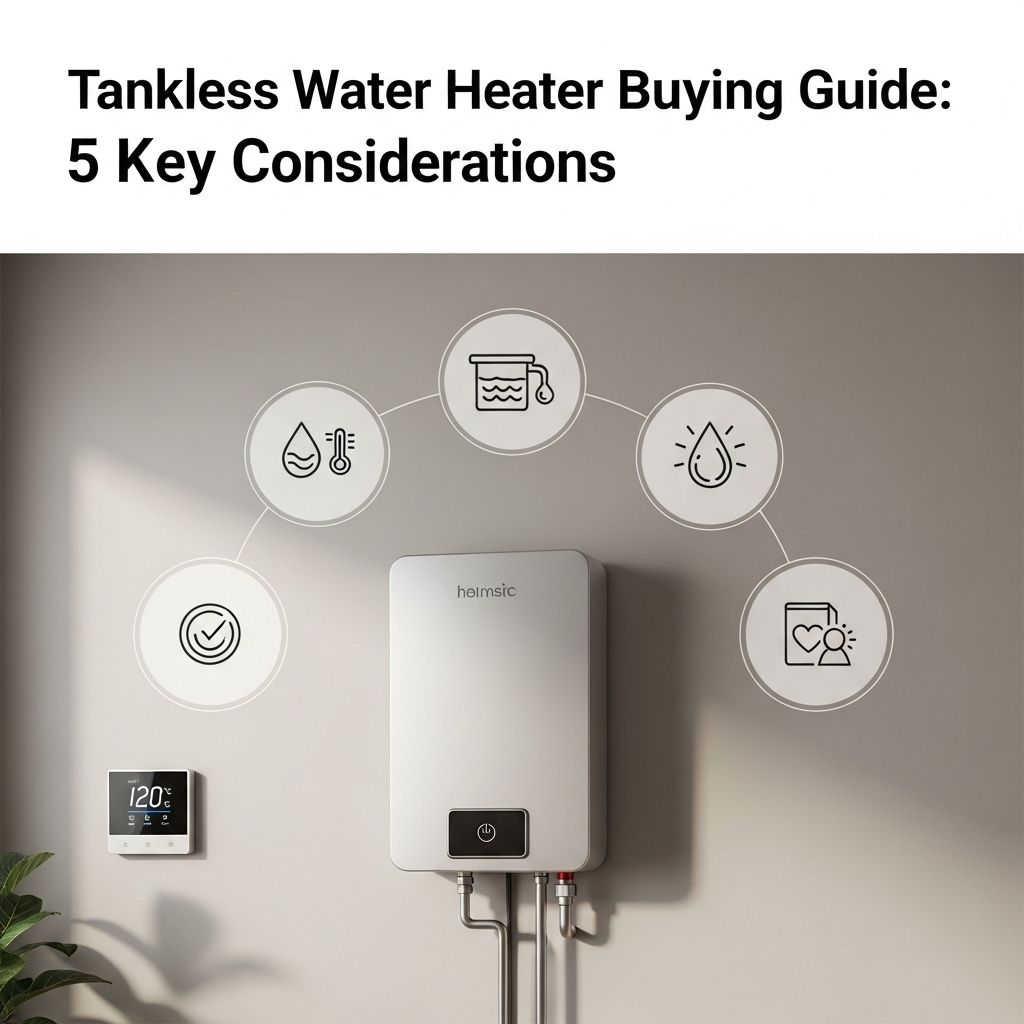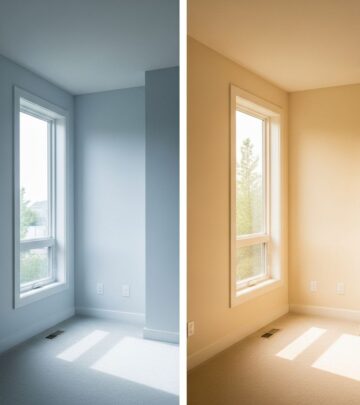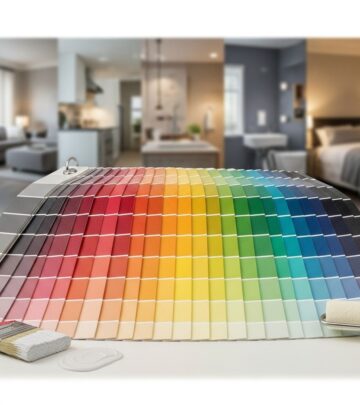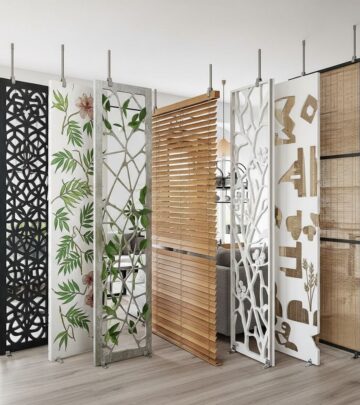Tankless Water Heater Buying Guide: 5 Key Considerations
Thinking about going tankless? Discover the pros, cons, and crucial tips before upgrading your water heater.

Image: HearthJunction Design Team
Read This Before You Buy a Tankless Water Heater
Tankless water heaters, also called on-demand or instantaneous heaters, have been steadily gaining popularity among homeowners seeking endless hot water and greater energy efficiency. Before making the switch from a traditional tank-style heater, it’s crucial to understand how tankless units work, their advantages and drawbacks, and the key factors that influence selection, installation, and maintenance.
How Tankless Water Heaters Work
Unlike conventional water heaters that continuously store and heat a reservoir of water, tankless models provide hot water only when needed. When you turn on a hot water tap, cold water flows through the unit’s heat exchanger, where it is rapidly heated—either by gas burners or electric heating elements—then delivered directly to your faucet.
- No tank means no standby heat loss, making tankless models more energy efficient.
- They supply a virtually endless stream of hot water, provided demand doesn’t exceed capacity.
- The compact design frees up valuable floor space in mechanical rooms or utility closets.
Tankless Water Heaters vs. Traditional Tank Water Heaters
| Feature | Tankless | Tank |
|---|---|---|
| Hot Water Supply | Endless (within flow rate limits) | Limited to tank size |
| Energy Efficiency | Higher (no standby loss) | Lower (constant reheating) |
| Lifespan | 15–20 years | 10–15 years |
| Installation Cost | Higher ($1,200–$3,500) | Lower ($800–$1,500) |
| Operating Cost | Lower (especially for smaller households) | Higher (increased with age) |
| Space Requirements | Wall-mounted, minimal space | Larger footprint required |
Is Tankless Right for You?
- Tankless is ideal for households with moderate to high hot water demand and those wanting to maximize energy savings.
- Tanks remain a cost-effective, universally compatible solution for most homes, especially where upfront cost is a concern.
Types of Tankless Water Heaters
Choosing the right type depends on your home’s fuel source, hot water needs, and installation constraints.
- Gas-Fired (Natural Gas or Propane): Greater heating capacity, well-suited for larger households or whole-house use. Requires proper venting and may need gas line upgrades.
- Electric: Simpler installation, no venting needed, compact. Best for small homes, apartments, or point-of-use applications. May require electrical system upgrades.
Condensing vs. Non-Condensing Units
- Non-Condensing: The first-generation tankless technology. Hot combustion gases are vented directly outdoors, so they need expensive stainless-steel venting.
- Condensing: Capture heat from exhaust gases to increase efficiency. Allow use of less expensive PVC venting.
Key Considerations When Selecting a Tankless Water Heater
- Hot Water Demand: Calculate simultaneous usage (showers, laundry, dishwashing) to determine flow rate (measured in gallons per minute, or GPM).
- Fuel Type: Consider energy costs and availability of natural gas, propane, or sufficient electrical capacity.
- Location: Tankless heaters must be installed close to high-use points to reduce lag time. Outdoor units are available for mild climates.
- Size and Capacity: Sizing is crucial—undersized units can result in lukewarm water or fluctuating temperatures during heavy use.
- Efficiency Ratings: Look for the Uniform Energy Factor (UEF). Higher ratings mean better efficiency and savings.
Benefits of Tankless Water Heaters
- Endless Hot Water: As long as demand stays within the unit’s capacity, families never run out of hot water—great for larger households or consecutive showers.
- Energy Savings: Tankless models can use up to 24–34% less energy for households that use up to 41 gallons daily, reducing utility bills and carbon footprint.
- Longevity: With proper maintenance, tankless heaters often last 15–20 years, far outlasting traditional tanks.
- Space Savings: Wall-mounted and compact, freeing up valuable storage space.
- Reduced Leak Risk: No large tank means a lower chance of catastrophic water damage.
Potential Drawbacks and Considerations
- Higher Upfront Cost: Equipment and installation costs are typically higher than tank-style systems, especially if retrofitting gas lines, venting, or electric service is needed.
- Flow Rate Limitations: Exceeding the maximum flow means water temperature will drop, so simultaneous use of multiple fixtures may require multiple units.
- Annual Maintenance: Regular descaling is essential to prevent mineral buildup, especially in hard-water regions.
- Lag Time: Some units may exhibit a slight delay in hot water delivery compared to tank models.
- Potential for Warranty Issues: Some manufacturers require professional installation to validate the warranty.
How to Select the Right Tankless Water Heater
- Assess Your Hot Water Needs: Add up the flow rates of all fixtures you expect to use simultaneously during peak demand (e.g., two showers and a dishwasher).
- Check Fuel Availability and Pricing: Determine if you have reliable gas or sufficient electrical service. Assess lifetime fuel cost differences.
- Decide on Indoor vs. Outdoor Installation: Outdoor models can be easier in mild climates but may require freeze protection features.
- Consider Efficiency Ratings: Higher UEF or Energy Star models provide greater long-term savings.
- Choose Your Preferred Technology: Condensing units cost more upfront but offer greater efficiency and lower venting costs.
- Plan for Maintenance: Know that annual flushing and periodic servicing will be required for optimal performance.
Installation: DIY vs. Professional
While some experienced homeowners may be tempted to install a tankless unit themselves, most jobs require a pro due to complexity:
- Retrofitting Issues: Upgrading from a tank may require new gas lines or a higher-capacity electrical circuit, and building codes must be followed.
- Venting Requirements: Gas units must be properly vented outdoors to prevent carbon monoxide buildup. Condensing models allow more flexibility here.
- Multiple Units: Large homes with heavy demand might need several smaller tankless heaters, increasing installation complexity.
- Warranty Protection: Most manufacturers require professional installation to honor the warranty.
Given these factors and the need for safe gas, water, and electrical work, hiring a professional plumber and (for electric units) an electrician is usually the safest and best choice.
Cost Breakdown: What to Expect
- Tankless Water Heater Installation: Expect to pay $1,200–$3,500 (including labor and equipment), depending on complexity, region, and fuel type.
- Traditional Tank Model Installation: Generally between $800–$1,500.
- Operating Costs: Tankless units often save $100–$200 per year in energy, depending on usage and rates.
- Longevity: Tankless units last 15–20 years, tank models 8–12 years.
Electric Tankless Water Heaters: Best Use Cases
- Small homes, apartments, or additions
- Point-of-use applications (e.g., a single bathroom, laundry room, or remote sink)
- Homes without access to natural gas or propane
- Those seeking a compact, ventless installation
Electric tankless water heaters are easier and less expensive to install if you have adequate electrical capacity but are generally less powerful than gas models for whole-house use.
Maintenance and Longevity
- Flush the system with a descaling solution at least once a year to remove mineral buildup, especially if you have hard water.
- Clean or replace air intake and water filters as recommended by the manufacturer.
- Keep the unit and surrounding area clear of dust and debris.
- Prompt professional servicing if you notice temperature swings, reduced water flow, or error codes.
With proper maintenance, a tankless water heater can easily last 15–20 years or more, significantly longer than standard tank models.
Frequently Asked Questions (FAQs)
Q: What size tankless water heater do I need?
A: Your required size depends on peak simultaneous hot water use. Add up the flow rates (GPM) for each fixture you’ll use at once—showers, sinks, appliances—to determine required capacity. Most units range from 2–11 GPM; whole-house systems typically need 7–10 GPM.
Q: Are tankless water heaters truly energy efficient?
A: Yes, they only heat water when needed, eliminating standby energy losses. Households with moderate use can save 24–34% in water heating energy costs. Savings are greatest for smaller families or those with less hot water usage.
Q: Will I ever run out of hot water with a tankless unit?
A: As long as you don’t exceed the unit’s maximum flow rate, hot water is uninterrupted. If demand is too high (e.g., multiple showers and appliances simultaneously), the unit may struggle to keep up and water temperature will decrease.
Q: Is a tankless water heater difficult to install?
A: Installation is more complex than with a standard tank heater. It often involves upgrades to gas lines, venting, or electrical, and should be handled by a licensed professional for safety and warranty protection.
Q: How long does a tankless water heater last?
A: With regular maintenance, most tankless units last 15–20 years, significantly longer than traditional tanks, which last about 8–12 years.
Q: Are rebates or incentives available?
A: Many utilities and government programs offer rebates for high-efficiency tankless water heaters. Check local and state programs to discover available incentives.
Conclusion: Is Going Tankless Right for You?
Tankless water heaters offer unmatched convenience and energy savings for many homes, but they come with a higher upfront investment and require careful sizing, professional installation, and regular maintenance. Weigh your hot water needs, available fuel sources, long-term savings, and household priorities before making the switch. For many, the reward is a virtually endless supply of hot water, a smaller energy bill, and peace of mind for years to come.
References
- https://www.thisoldhouse.com/plumbing/21019184/read-this-before-you-buy-a-tankless-water-heater
- https://www.thisoldhouse.com/electrical/21016242/best-uses-for-an-electric-tankless-water-heater
- https://www.youtube.com/watch?v=ml8HFHdwfOU
- https://goclean.masscec.com/videos/this-old-house-explanation-of-a-house-hvac-plan-2/
- https://www.thisoldhouse.com/plumbing/reviews/tankless-water-heater-installation-cost
Read full bio of medha deb










